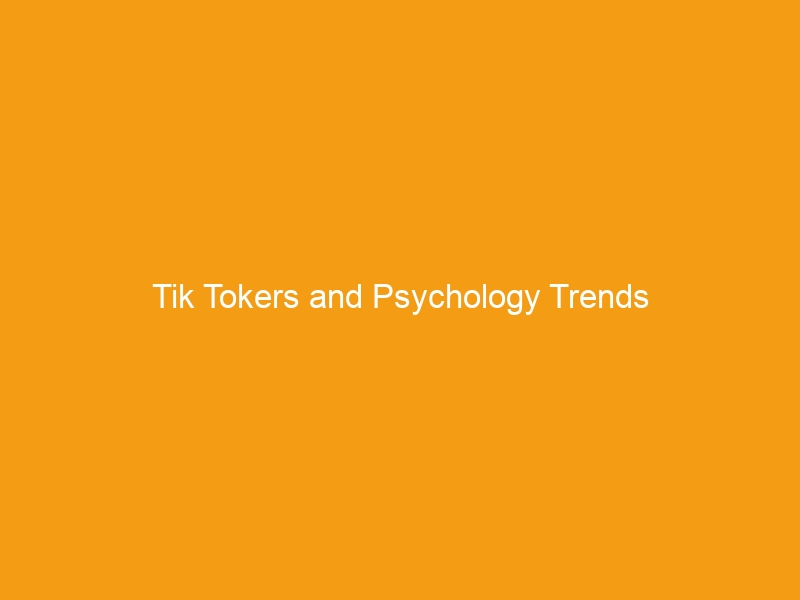How Are These Trends Affecting Mental Health and Self-Image? Neuropsychologist Weighs In.
As TikTok has taken over the world of social media throughout the last few years, many psychological trends have become increasingly popular and could be more harmful than helpful. Users have begun sharing their personal experiences with mental health struggles, coping mechanisms, and diagnoses. While this trend has the potential to be informative and raise awareness, it could also be extremely detrimental to viewers’ mental health in the long run. Dr. Sanam Hafeez breaks down some of the most prevalent trends right now.
Bedrotting: One of the most talked about trends right now is “bedrotting,” which refers to people using their phones excessively throughout the day while lying in bed, usually with snacks and TV on in the background, which can severely impact both physical and mental health. This differs from taking time to relax and unplug in bed, as bedrotting is often used as a coping mechanism for dealing with stress and anxiety. This is extremely prevalent in Gen-Z culture today, as people in this generation are more prone to mental health struggles. Bedrotting can worsen anxiety, as you become more accustomed to lack of exercise and excessive screen time. It can also hinder your sleep, as your bed should be reserved for sleep and rest only.
Face Filters- The use of face filters on social media has been prevalent in society for years and continues to grow in popularity on TikTok. Users are able to select a face-altering, “beautifying” filter to enhance their appearance and minimize imperfections or blemishes. This can be harmful to viewers’ self-image and mental health, as the content they are consuming portrays an unrealistic persona. Many people find themselves comparing themselves to these heavily-edited social media posts, which can damage their self-image and increase insecurities.
Self-Diagnosing- Another psychological trend on TikTok is “self-diagnosing.” This phenomenon refers to users showing their daily POV when dealing with their mental health diagnoses. This could be helpful to people struggling with the same issues or symptoms, however, it could be more harmful, as it may lead viewers to believe they have a condition that they don’t know enough factual information about, or haven’t spoken with a mental health professional about. Tik Tokers could also be portraying a fake lifestyle and sharing coping mechanisms that they don’t actually use, making viewers more likely to feel bad about themselves and the ways they deal with the same issues.
“Glowing up” is when you make changes in your life to transform and better yourself. Examples of this include saying daily affirmations, journaling, exercising, and going to therapy. This can encourage viewers to partake in healthy, positive behaviors, however, it can also give the illusion that it is easy to improve your lifestyle seemingly overnight to achieve the results you want. In reality, viewers have no idea if these people are actually sticking to their alleged routine and being truthful. This could cause individuals to compare their self-improvement journey to someone else’s and feel that they are behind in life or not as happy as other people.
Lucky Girl Syndrome- One of the most popular trends right now is “lucky girl syndrome,” which refers to implementing positive daily affirmations into your life while believing you are manifesting whatever it is you want. It is the idea that if you treat your day-to-day life as if you already have everything you want, those things will naturally come to you as you are attracting them by changing your mindset. While this might work to some extent for some people, others believe positive self-talk only goes so far, and many changes in your life will require action as well. This could give viewers the impression that other girls sharing their positive experiences with this trend are effortlessly manifesting unrealistic or impractical things that require hard work, persistence, and action.
New York State Licensed Neuropsychologist and Director of Comprehend The Mind
Dr. Sanam Hafeez is a New York City based Neuropsychologist and School Psychologist. She is also the founder and director of Comprehensive Consultation Psychological Services, P.C. She is currently a teaching faculty member at Columbia University.

